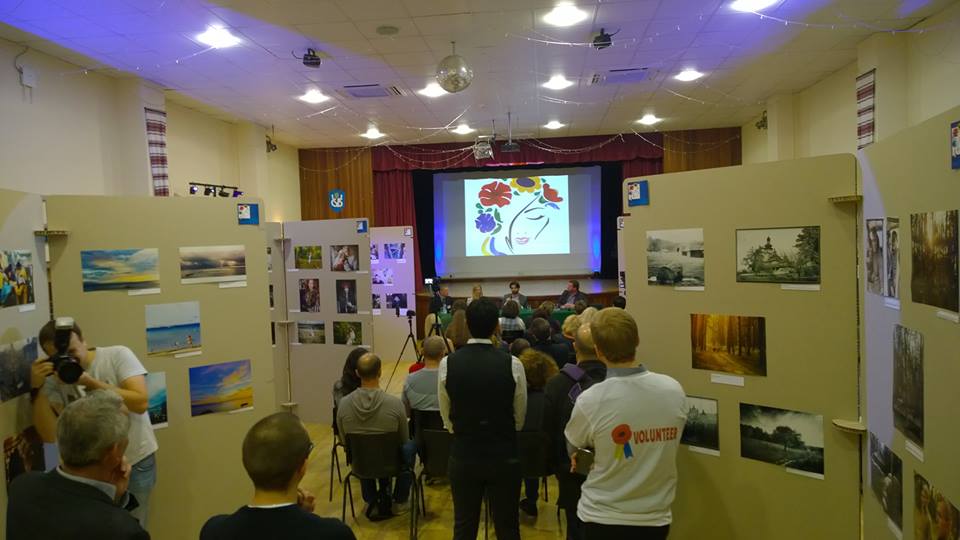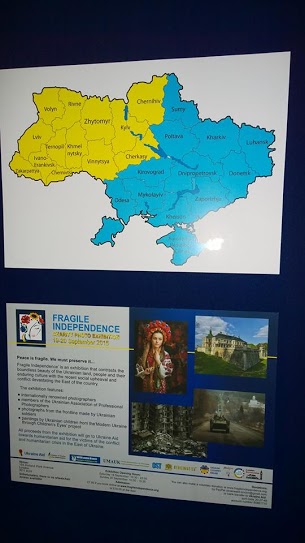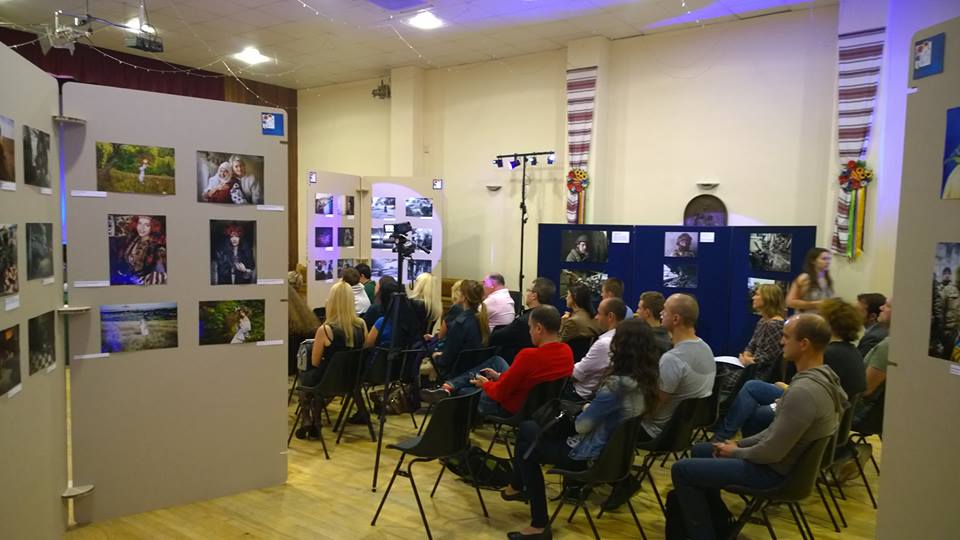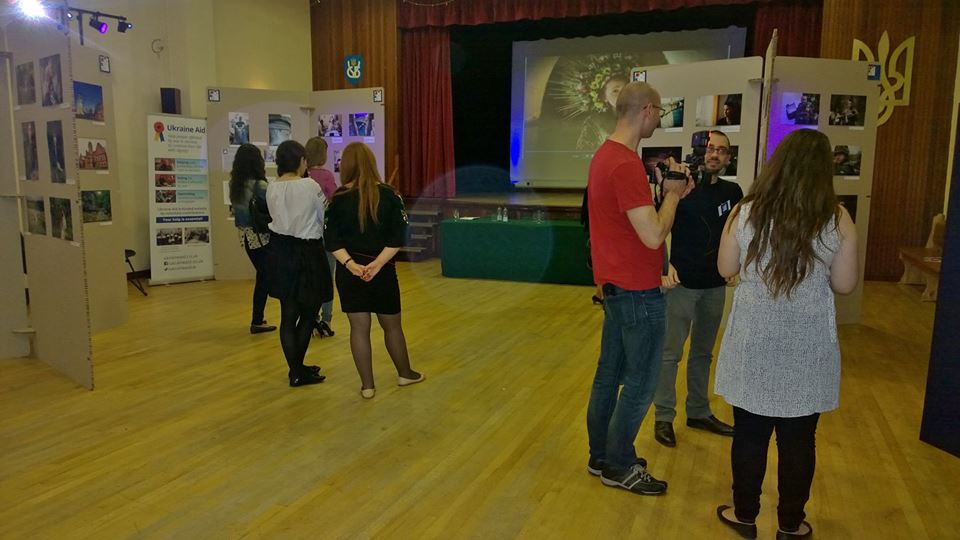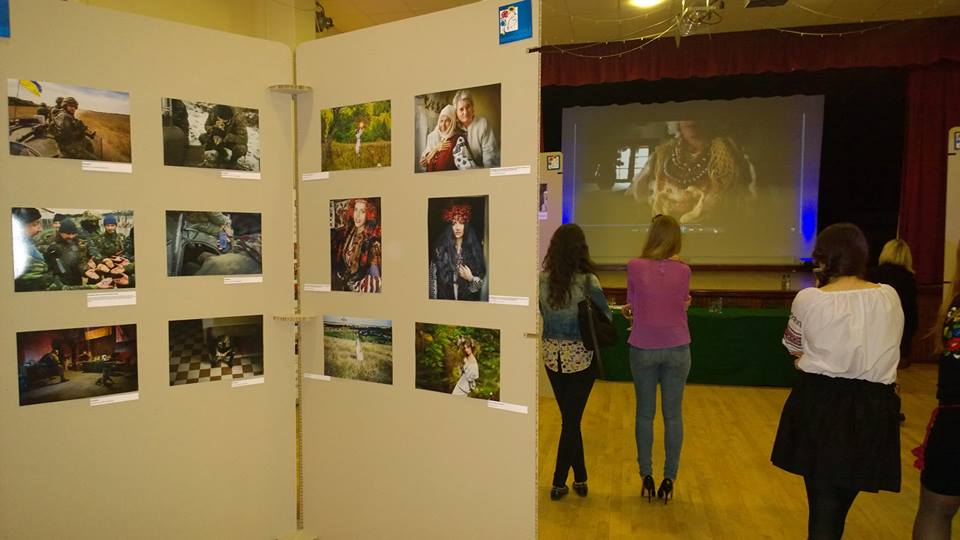The ‘Fragile Independence’ Photography Exhibition, the first of its kind in the UK, opens its doors to visitors at the Ukrainian Community Centre in London on 19th-20th September 2015. The exhibition comprises well over a hundred photographs and contrasts the boundless beauty of the Ukrainian land, people and their enduring culture with the conflict artificially instigated from outside by Russia.
‘Fragile Independence’ features internationally renowned photographer and correspondent Sergei Loiko of the Los Angeles Times. He is the only foreign correspondent who witnessed some of the worst fighting at the Donetsk airport in the East of Ukraine. Sergei recently published a novel ‘The Airport’: “a story about the war that should never have happened and heroes who wanted to live but died.”
The exhibition includes works by other prominent international and Ukrainian photographers, such as, for example, the members of the Ukrainian Association of Professional Photographers Alexey Kolobov and Ivan Bogdan, and the film director Ivan Kravchyshyn in collaboration with the Lviv Museum of Folk Architecture and Rural Life. In addition, the exhibition offers to visitors several photos from the "Children of the heroes" charitable photo-project, which united young professional photographers across Ukraine with the idea of raising moral and sending a positive message to families, whose breadwinners were fighting on the frontline or have tragically died defending their land. There is a rare opportunity to see both images taken by soldiers directly at the frontline and paintings by Ukrainian children as part of the ‘Modern Ukraine through Children’s Eyes’ project.
"We called the exhibition ‘Fragile Independence’ to show how difficult it is to gain independence. Unfortunately in this turbulent times we have to fight for Ukraine’s independence again," - said the organizer of the exhibition.
At the press briefing, photographers Ben Robinson, who was displaying his works at the exhibition, spoke about their experiences during their visits to the East of Ukraine.
Ben Robinson believes that “the public in the UK loses sight of the situation in Ukraine - in part because of the plight of refugees and migrants in western Europe and the UK, fuelled by the conflict in Syria. However, “this remains a critical moment and has significant impact for all of Europe and beyond, even when the news slips out of sight. I hope my photos help give a face to the dislocation and trauma suffered by so many. This is not a civil war, but a crisis instigated by those outside who want division and chaos in order to win. The strength of the response from throughout Ukraine - volunteers from all walks of life - gives hope that a different outcome is possible, one small step at a time."
All proceeds from the exhibition will go to Ukraine Aid towards humanitarian aid for the victims of the conflict and humanitarian crisis in the East of Ukraine. Ukraine Aid’s Managing Director Tetyana Vovnyanko emphasised the importance of providing continual support to victims of the conflict: “Our charitable organisation Ukraine Aid would like to make a real difference to the lives of the injured and wounded, orphaned children and families who have lost their breadwinners. Hundreds of people in Ukraine endured dispiriting life-changing experiences and need urgent help with their medical treatment and rehabilitation. These people have fallen victims to the tragic events unfolding in Ukraine, which are not of their making.”
This project would not have been possible without a warm and generous support of the Association of Ukrainians in Great Britain (London Branch) and many other supporters believing in stable, prosperous and independent Ukraine.
For more, visit the Exhibition website www.fragileindependence.org and facebook page: www.facebook.com/fragileindependence



